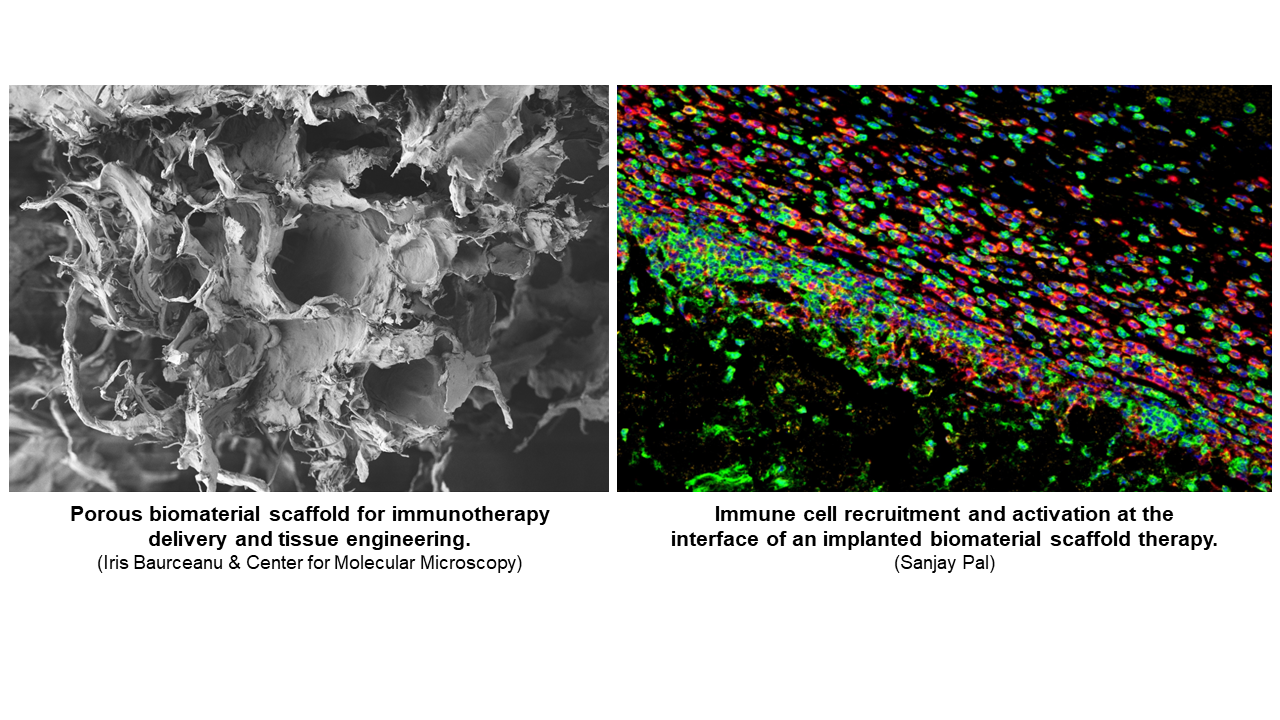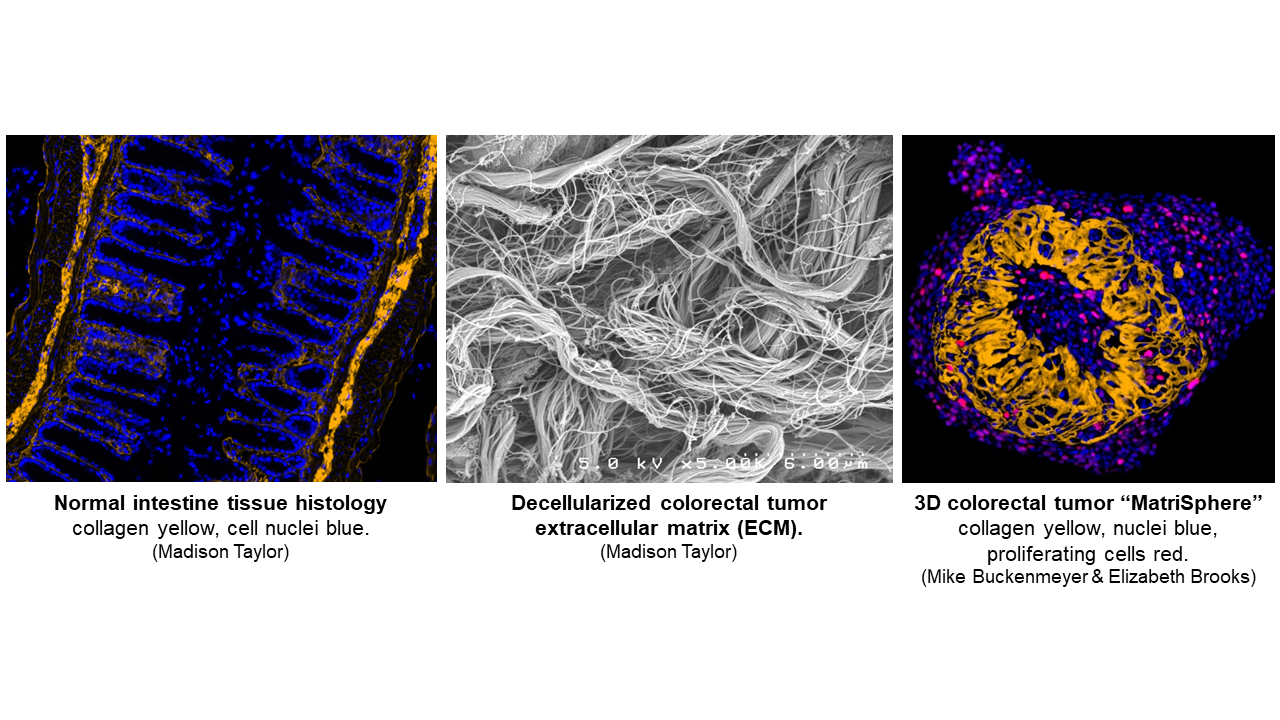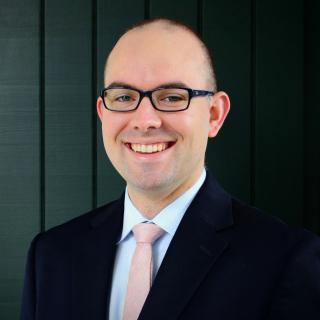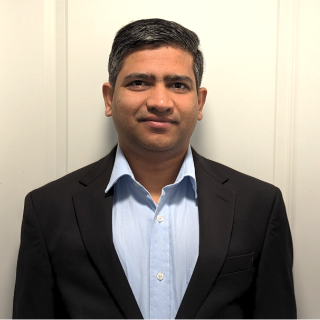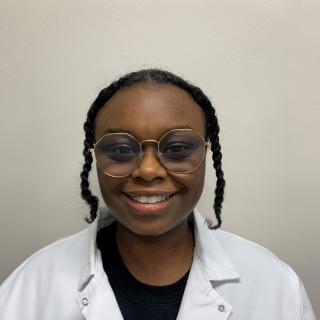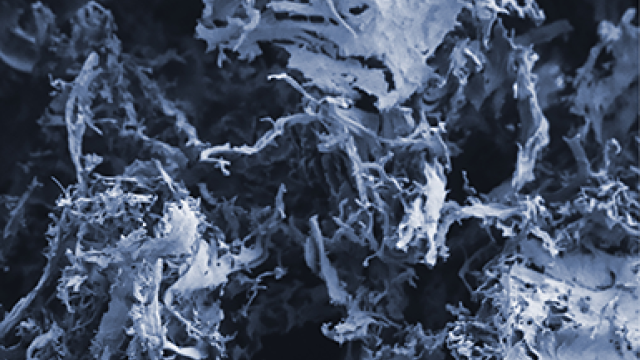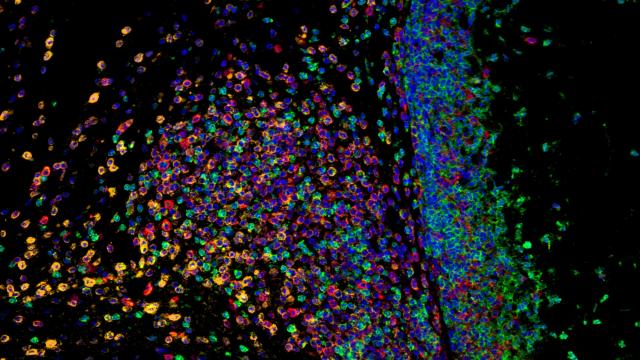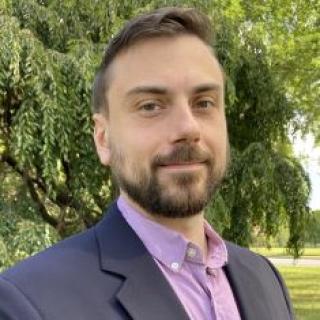
Matthew T. Wolf, Ph.D.
- Center for Cancer Research
- National Cancer Institute
- Building 560, Room 31-50
- Frederick, MD 21702-1201
- 301-846-6032
- matthew.wolf@nih.gov
RESEARCH SUMMARY
The Wolf lab investigates immunomodulatory biomaterials for cancer immunotherapy, cancer vaccines, and patient-specific tumor models in-a-dish. Dr. Wolf is a biomedical engineer at the forefront of integrating biomaterials science, cancer immunology, and tissue engineering in cancer treatment.
Areas of Expertise

Matthew T. Wolf, Ph.D.
Research
Cancer Biomaterials Engineering
The Cancer Biomaterials Engineering Section is a multidisciplinary combination of biomaterials science, cancer immunology, and tissue engineering. The lab is led by Dr. Matthew Wolf and investigates immunomodulatory biomaterials for use in next-generation cancer immunotherapies. Biomaterials are made from a diverse range of substances, from plastics to collagen, and are important tools in medicine. Examples include artificial joints, vascular stents, reconstructive surgery after car accidents, or even replacing entire tissues like heart valves. However, biomaterials also have the ability to initiate and regulate inflammation in ways that depend on its physical and chemical composition. We aim to integrate immunomodulatory biomaterials with immune oncology – the study of the immune system’s role in recognizing and fighting cancer. Decoding the cellular and molecular processes at the biomaterial-tissue interface enables us to control immunity for more effective cancer immunotherapy, cancer vaccines, and patient-specific tumor models in-a-dish. Understanding the reverse (how cancer hijacks the immune response to materials), will aid in developing regenerative medicine therapies for cancer patients who have impaired wound healing.
Scaffold Assisted Cancer Immunotherapy. Biomaterial scaffolds are used for precise localized drug delivery. Biomaterials also have the ability to initiate and regulate inflammation in ways that depend on its physical and chemical composition, providing a natural synergy with cancer immunotherapy. We aim to integrate immunomodulatory biomaterials in surgical immune oncology – the study of the immune system’s role in recognizing and fighting cancer during surgical intervention. Decoding the cellular and molecular processes at the biomaterial-tissue interface enables us to control immunity for more effective cancer immunotherapy such as checkpoint blockade immunotherapy and cancer vaccines.
Tumor Tissue Engineering the Tumor Microenvironment. Cancer cells don’t work alone to form tumors but rather rely on support from a three-dimensional (3D) microenvironment made up of fibroblasts, immune cells, and extracellular matrix (ECM). This tumor microenvironment enables cancer progression and therapy resistance, including resistance to cancer immunotherapy. We created a method to engineer tumor microenvironments in-a-dish that we call “MatriSpheres,” wherein diverse tumor cells and ECM molecules spontaneously self-assemble into 3D tumor-like structures. By using decellularized ECM, we can mimic the tumor microenvironment to study its effect on immune function and to test therapeutics in vitro before going to patients or animals.
Publications
Extracellular Matrix Scaffold-Assisted Tumor Vaccines Induce Tumor Regression and Long-Term Immune Memory
A 3D Self-Assembly Platform Integrating Decellularized Matrix Recapitulates In Vivo Tumor Phenotypes and Heterogeneity
Extracellular Matrix Limits Nanoparticle Diffusion and Cellular Uptake in a Tissue-Specific Manner
Spectral cytometry on highly autofluorescent samples
A biologic scaffold-associated type 2 immune microenvironment inhibits tumor formation and synergizes with checkpoint immunotherapy
Biography
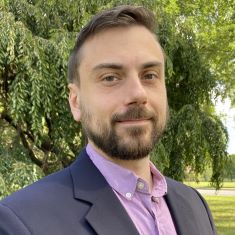
Matthew T. Wolf, Ph.D.
Dr. Matthew Wolf earned his doctoral degree in Bioengineering at the University of Pittsburgh, Swanson School of Engineering under Dr. Stephen F. Badylak where he developed biologic scaffolds for muscle tissue engineering. His postdoctoral training was conducted in Dr. Jennifer Elisseeff’s lab at Johns Hopkins University within the Translational Tissue Engineering Center (TTEC) and the Bloomberg~Kimmel Institute for Cancer Immunotherapy where he studied the immunological determinants of biomaterial-tumor interactions. During this time, he was awarded the Hartwell Foundation Postdoctoral Fellowship (2016) and was recipient of the Regenerative Medicine Workshop Young Investigator Postdoctoral Award (2019). He was appointed as a Research Associate in Johns Hopkins Biomedical Engineering in 2019. Dr. Wolf joined the National Cancer Institute as an Earl Stadtman Tenure-Track Investigator in August, 2020 where he studies immunomodulatory biomaterials to augment cancer immunotherapy.
Job Vacancies
We have no open positions in our group at this time, please check back later.
To see all available positions at CCR, take a look at our Careers page. You can also subscribe to receive CCR's latest job and training opportunities in your inbox.
Team
News
Sanjay Pal receives NIH FARE Travel award.
Congratulations to postdoc Sanjay Pal for receiving a 2023 NIH FARE Travel award!
Lab Life
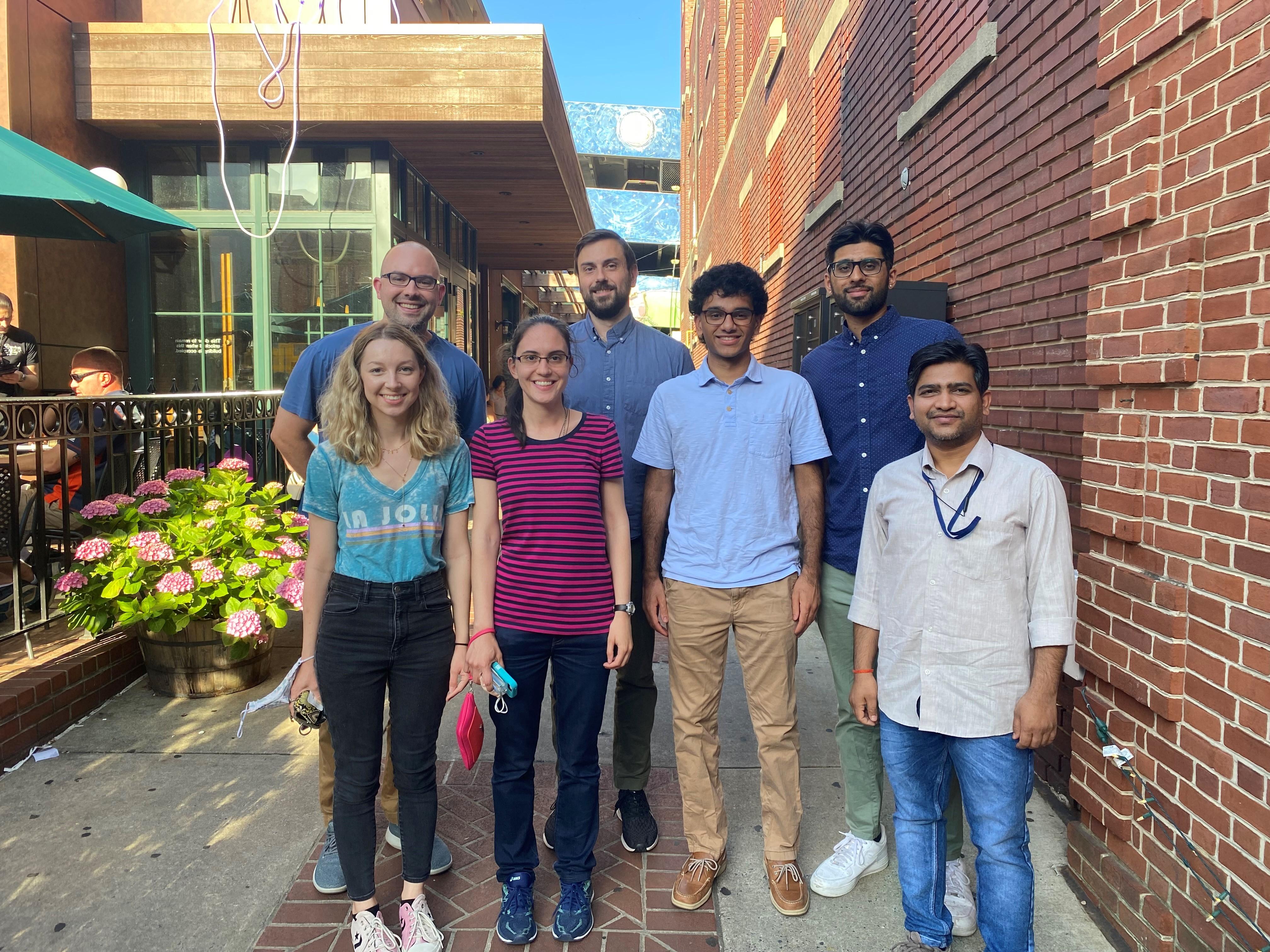
Lab outing at Brewer's Alley in downtown Frederick, MD.
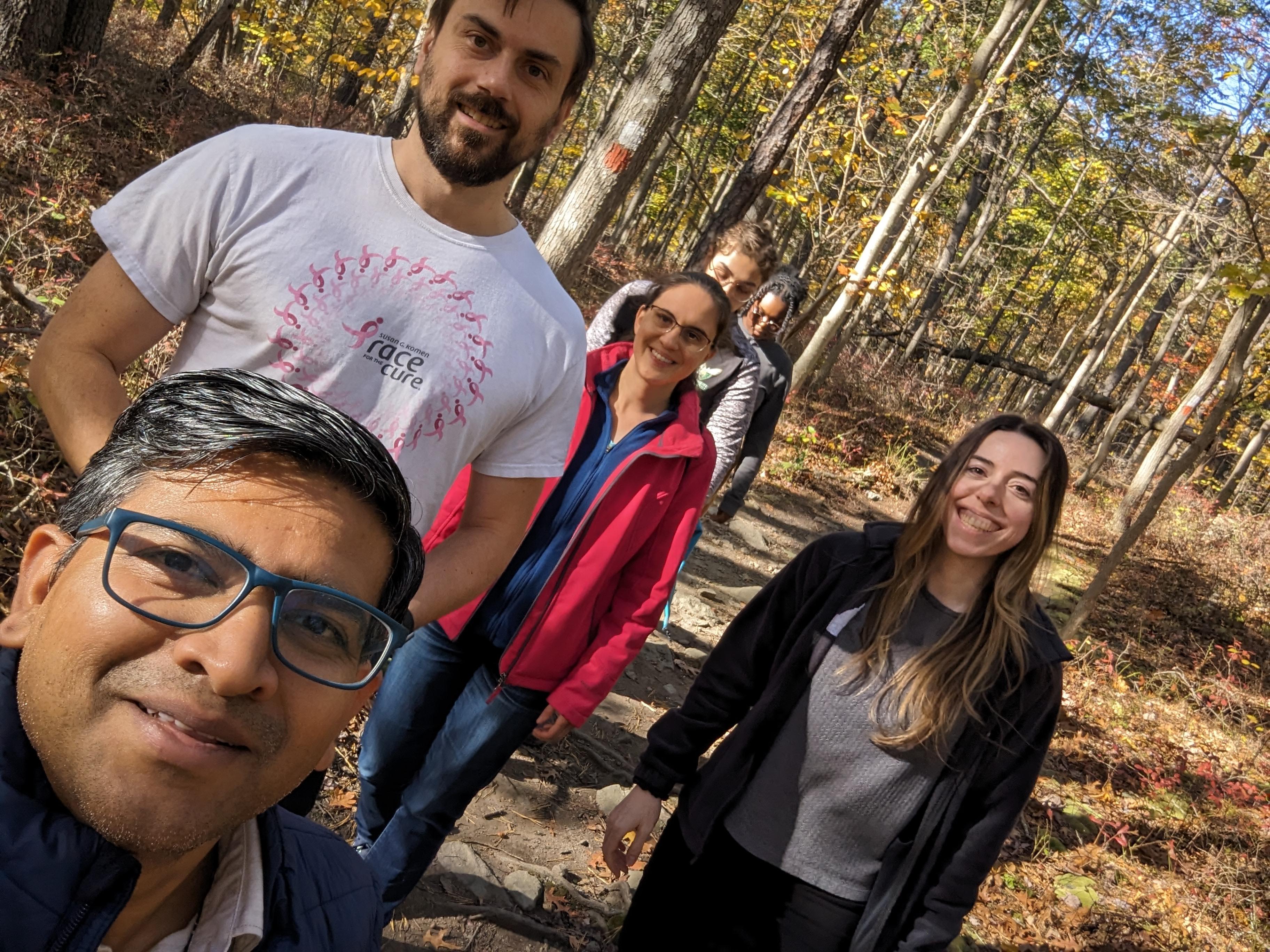
Lab hike up Catoctin Mountain on the way to Chimney Rock.

Sanjay, Iris, and Devorah enjoying the view from Chimney Rock on Catoctin Mountain.
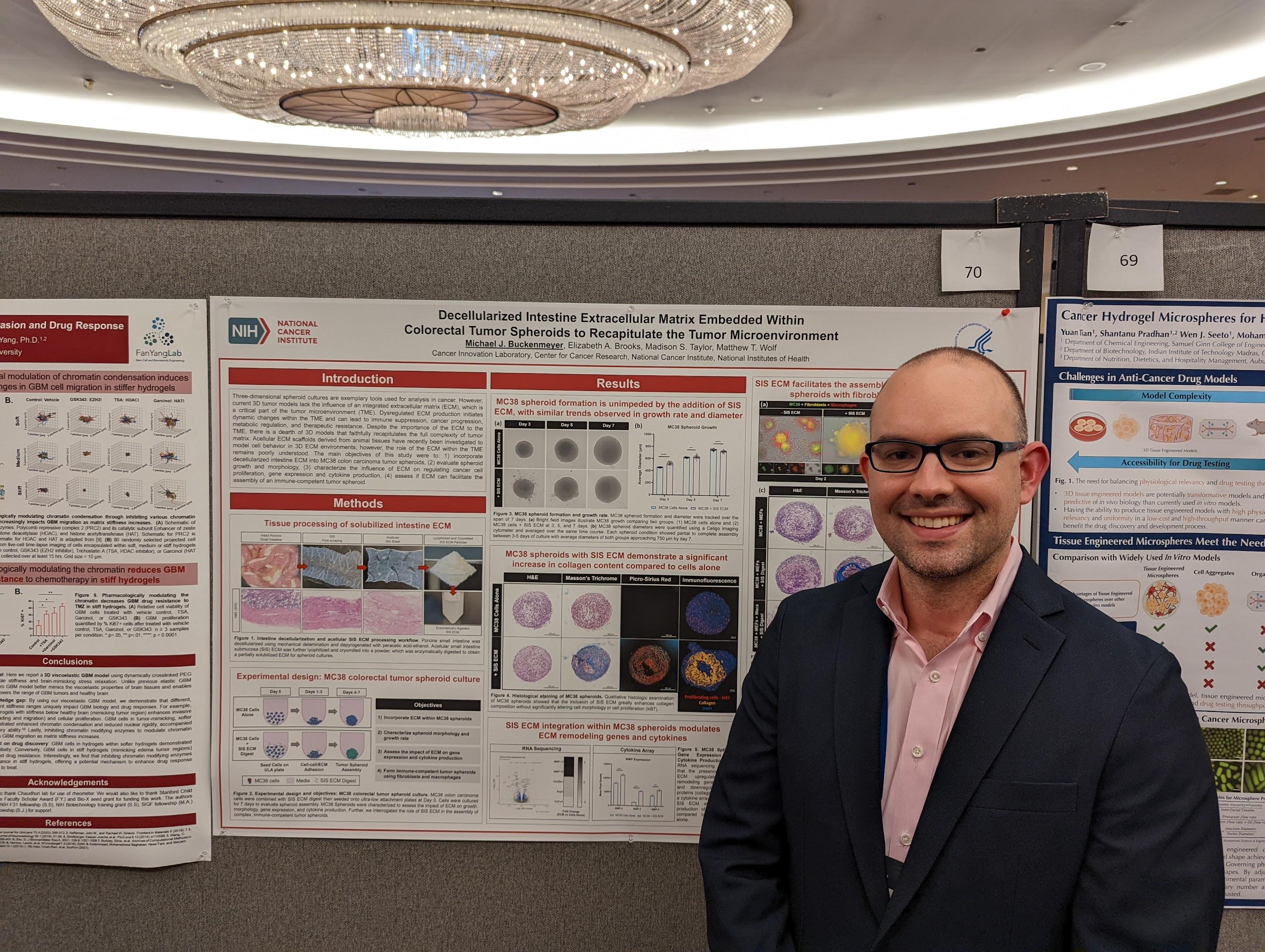
Mike Buckenmeyer presenting his work at the Society for Biomaterials Meeting.
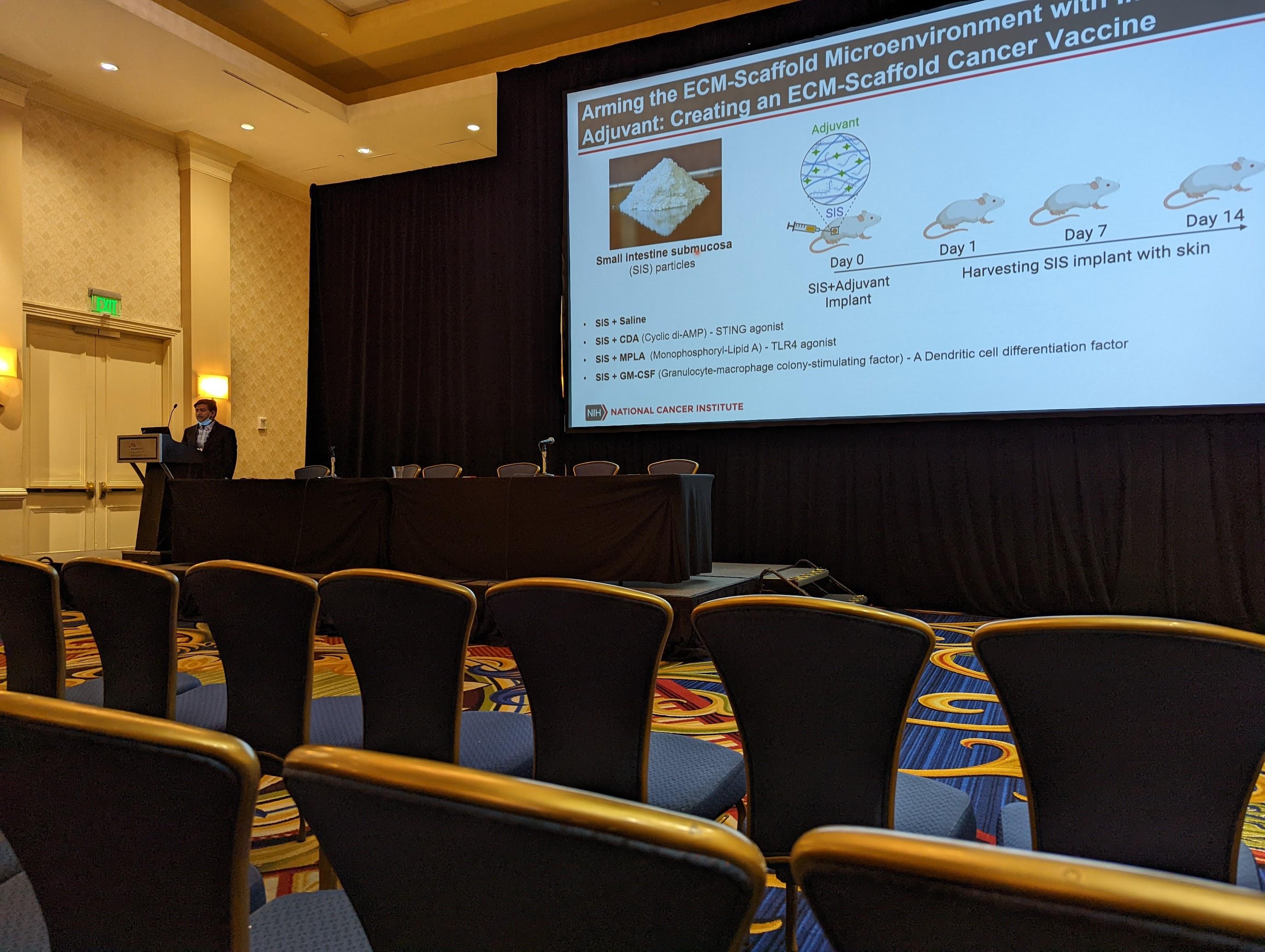
Sanjay Pal presenting his work at the Society for Biomaterials Meeting.
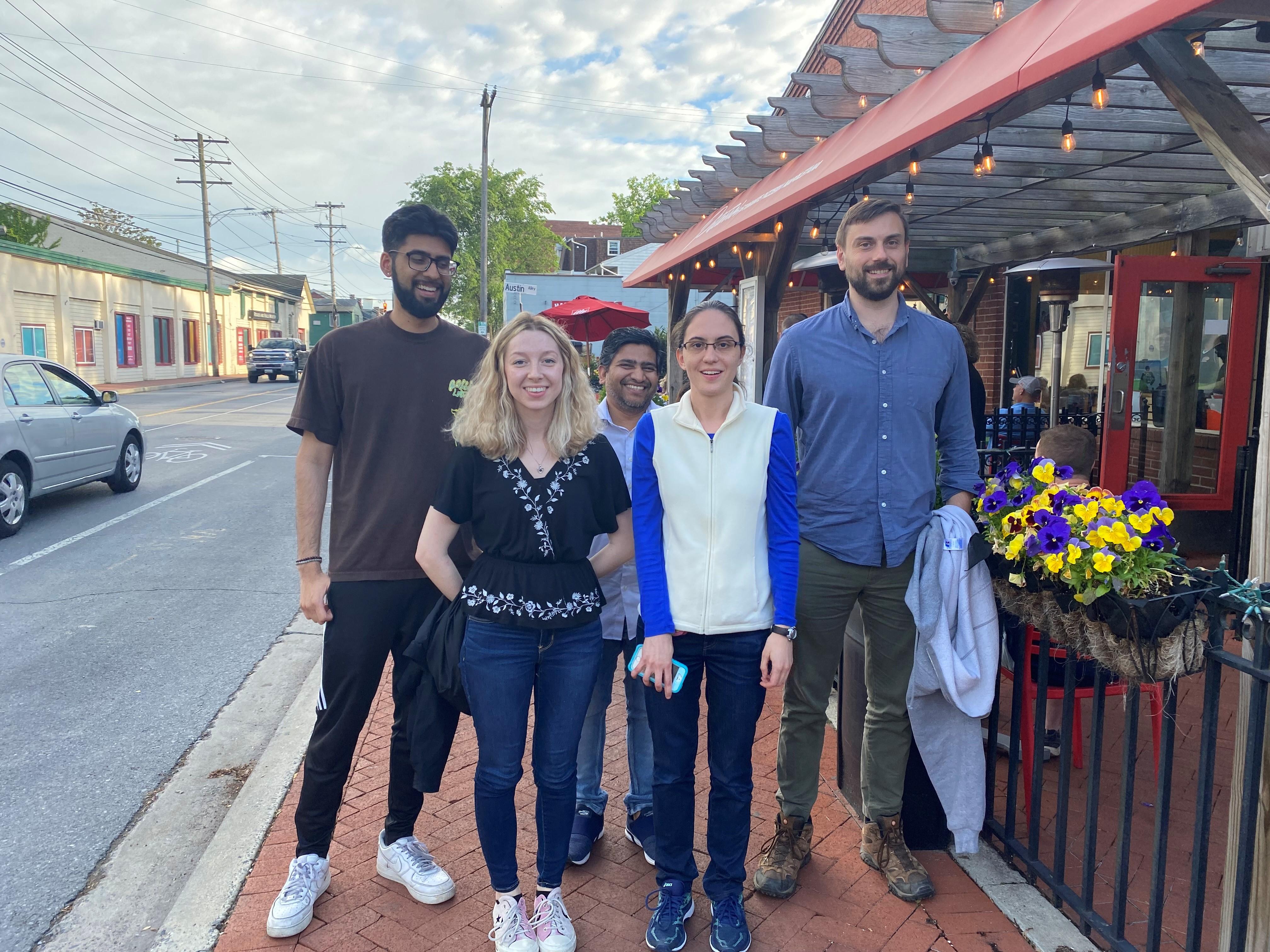
Celebrating Rohan's last day at Pistarro's Pizza.
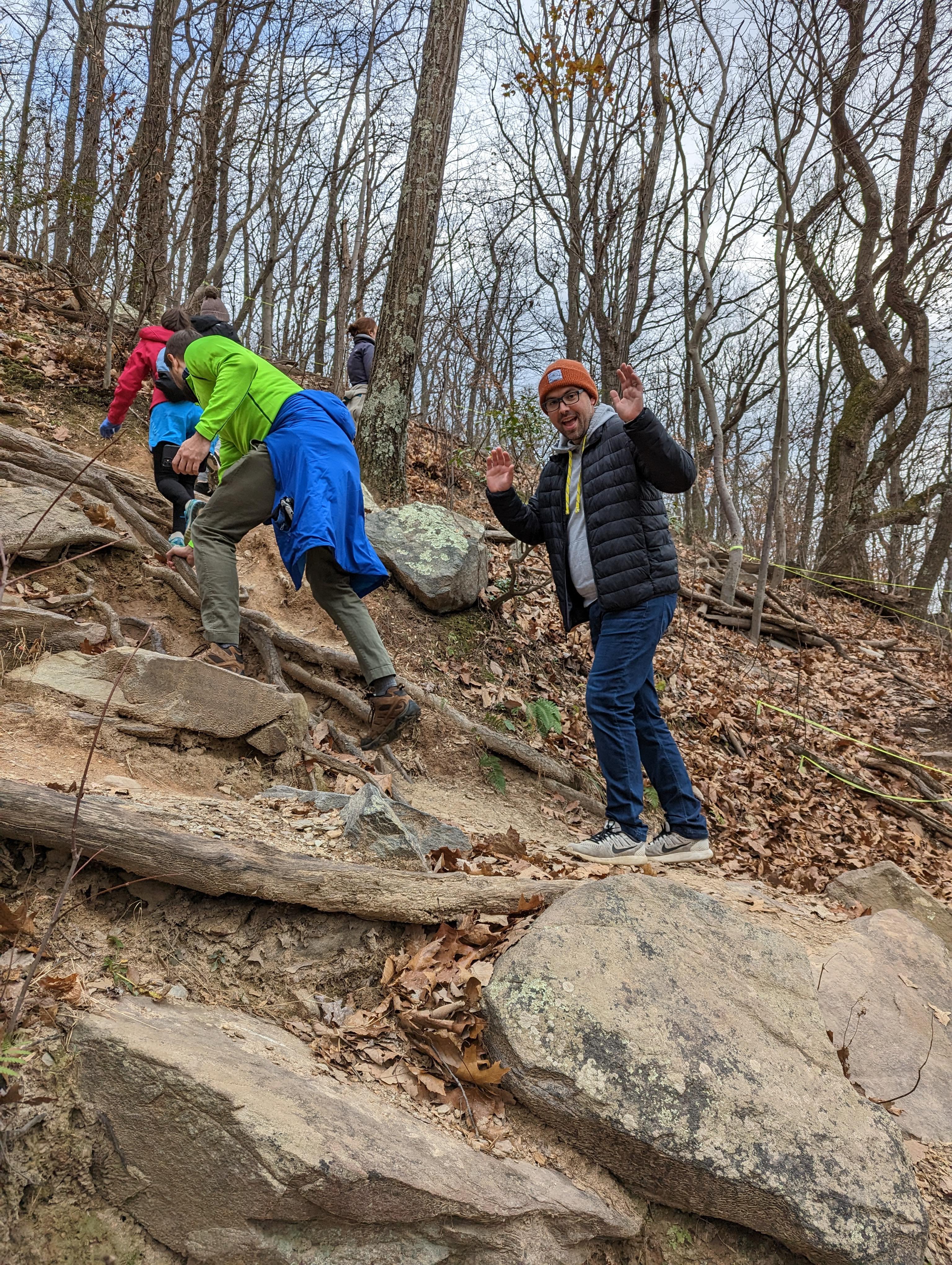
A winter climb up the Appalachian Trail to Weverton Cliffs.
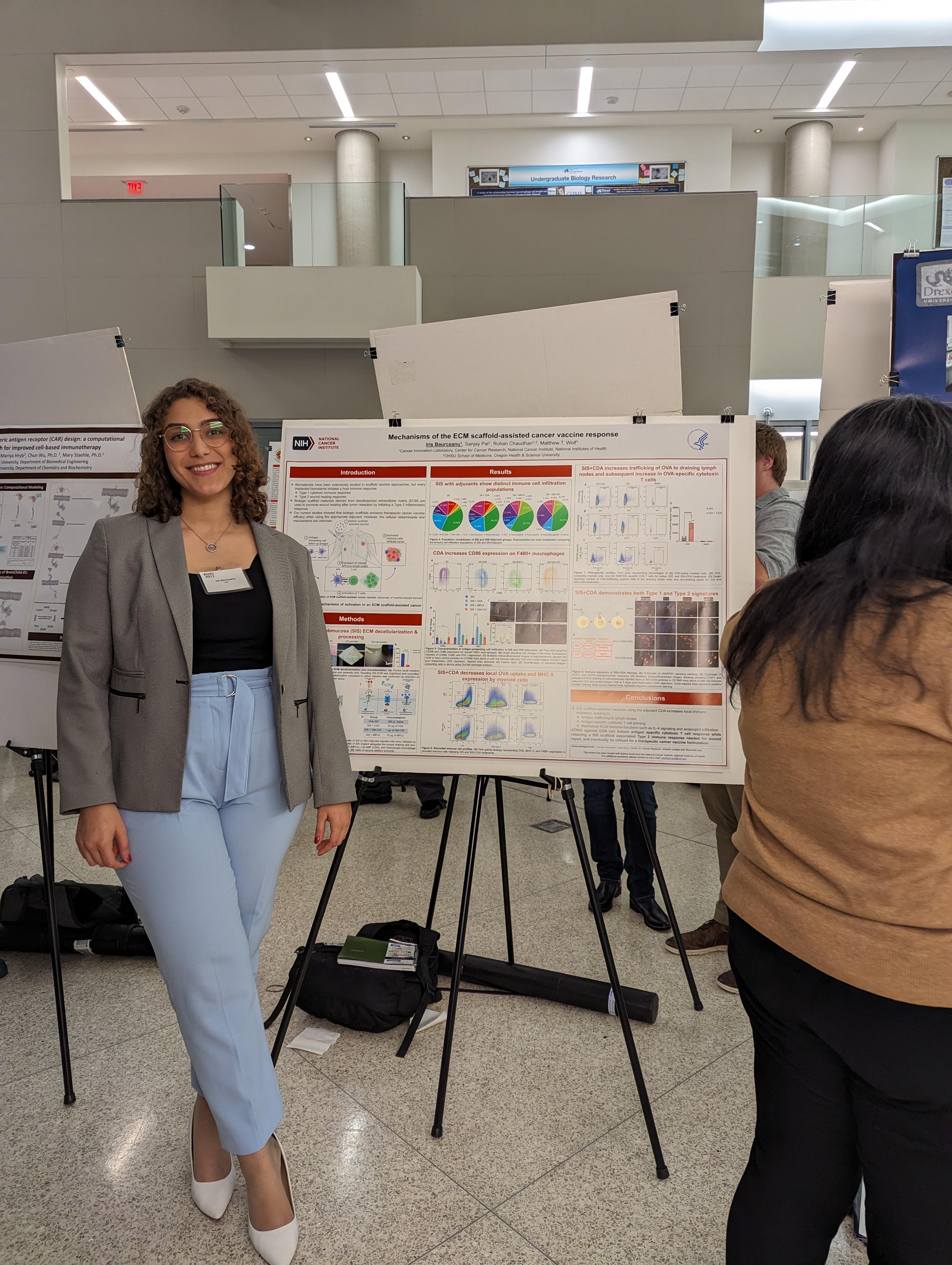
Iris Baurceanu presenting her work at the Immune Modulation & Engineering Symposium (IMES).
